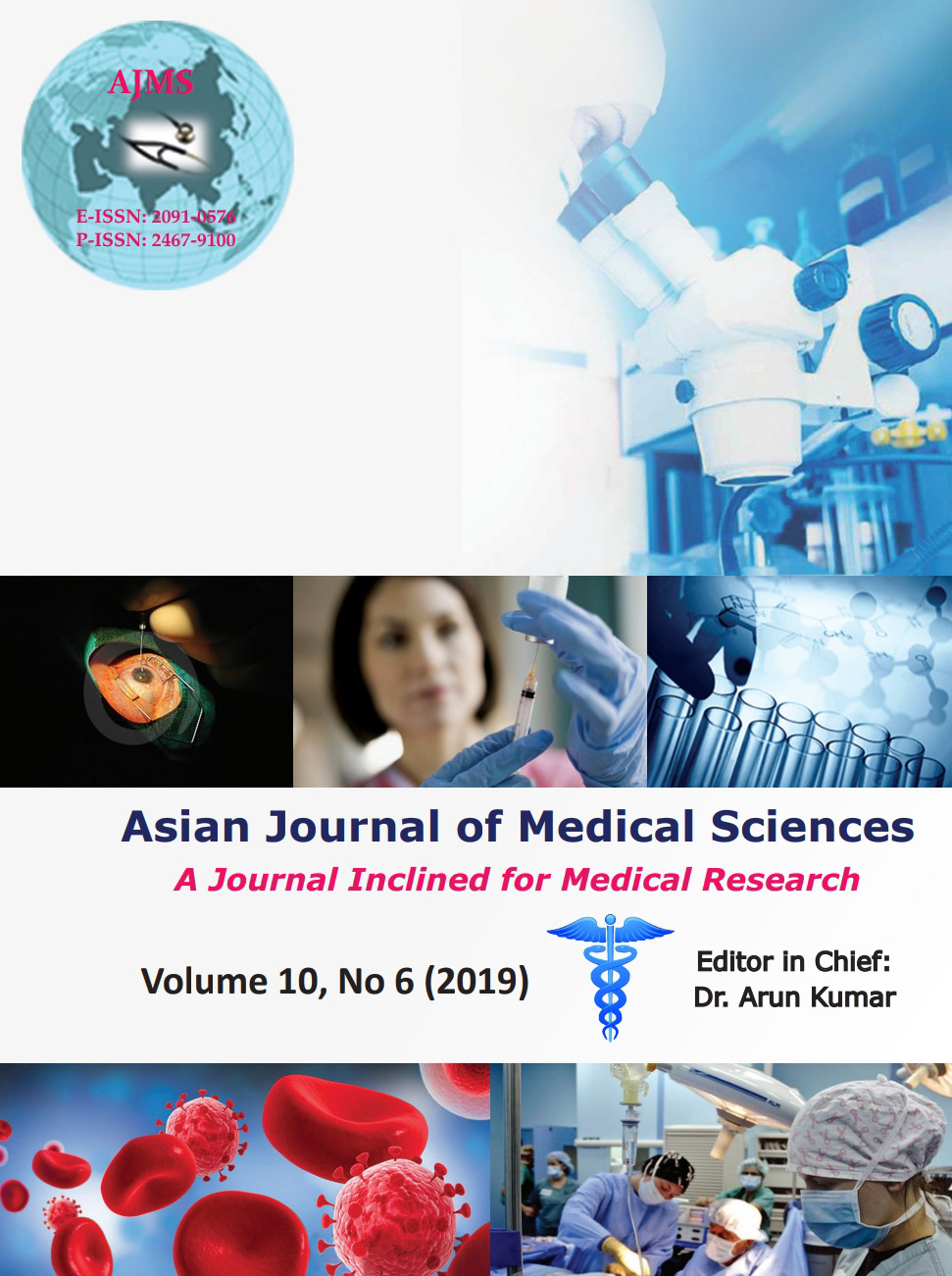Evaluation of blood groups in patients with anti TPO positive
Keywords:
ABO and Rh blood groups, Anti TPO, AutoimmuneAbstract
Background: In studies, ABO blood group system has been shown to be associated with type 2 diabetes mellitus, chronic renal failure, gestational diabetes mellitus, postpartum depression, coronary artery disease, Crohn’s disease as well as various cancer types such as stomach, breast, skin cancers and rheumatologic diseases.
Aims and Objective: The relationship between anti TPO positivity and ABO blood group system is aimed to be investigated by using blood groups which are the product of genetic structure and easy to identify by considering the relationship between anti TPO positivity and blood group.
Materials and Methods: 4312 patients with determined blood groups were included among the patients, who were admitted to the internal medicine outpatient clinics of our hospital between January 2, 2017 and May 28, 2019 and were screeened for thyroid antibodies with thyroiditis susceptibility.
Results: The most common blood group was A in both anti TPO positive and anti TPO negative patient groups.
The rate of those with O blood group was 2.65% higher in anti TPO positive group than anti TPO negative group. B blood group was found to be 4.87% higher in anti TPO negative group than anti TPO positive group (p:0.148).
Conclusion: In conclusion, it was found that O blood group may be a risk factor for anti TPO positivity and B blood group is much lower in anti TPO positive ones. However, it is obvious that more comprehensive prospective multicentered clinical and experimental studies are needed to establish the relationship between blood groups and autoimmune diseases, especially autoimmune thyroiditis.
Downloads
Downloads
Published
How to Cite
Issue
Section
License
Authors who publish with this journal agree to the following terms:
- The journal holds copyright and publishes the work under a Creative Commons CC-BY-NC license that permits use, distribution and reprduction in any medium, provided the original work is properly cited and is not used for commercial purposes. The journal should be recognised as the original publisher of this work.
- Authors are able to enter into separate, additional contractual arrangements for the non-exclusive distribution of the journal's published version of the work (e.g., post it to an institutional repository or publish it in a book), with an acknowledgement of its initial publication in this journal.
- Authors are permitted and encouraged to post their work online (e.g., in institutional repositories or on their website) prior to and during the submission process, as it can lead to productive exchanges, as well as earlier and greater citation of published work (See The Effect of Open Access).




